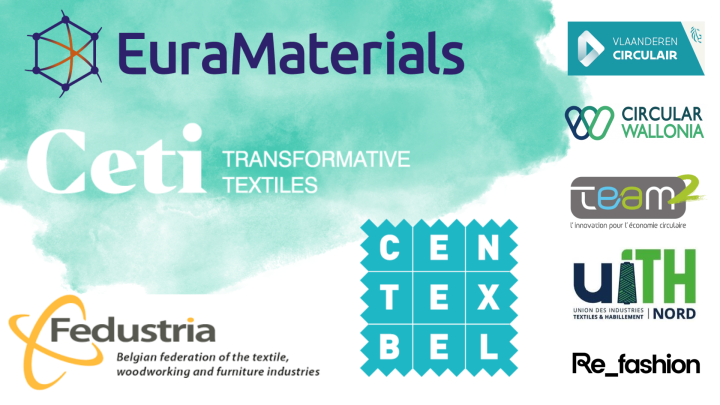With the support of



The RE-APS project, an INTERREG FWVL project, involves the development of thermomechanical recycling of polyester textiles, i.e. the pre-treatment, shredding and melting of polyester textile waste and the reuse of the resulting granules in the textile industry.
The project falls within the scope of Priority 1, "Supporting enterprise, growth and economic recovery through innovation and applied research", with the specific objective of "Developing and improving research and innovation capacities and the use of cutting-edge technologies". Europe launched the Green Pact with the twin goals of becoming the first climate-neutral continent by 2050 and modernising to increase its competitiveness and resource efficiency.
In 2021, the European Union defined a strategy for a more sustainable textile industry, facilitating the transition to a circular economy through better resource management and support for investment, research and innovation.
By prioritising the thermomechanical recycling of polyester textile waste for textile applications, REAPS anticipates legislation on polyester waste from bottles: until now, recycled polyester for textile applications, which accounts for 14% of the polyester supply, has come exclusively from used bottles.
Tomorrow, these bottle streams will be reserved for the plastic bottle industry, making them unavailable for the supply of recycled polyester for textiles. Textile polyester will account for 54% of the 113 million tonnes of fibres produced worldwide in 2021 (see Textile Exchange). In the project area alone, the same volume proportions can be predicted for the 55,000 tonnes of consumer clothing textiles collected, to which can be added production waste from the textile industrial sector. The potential for recycling polyester deposits is therefore enormous and is either under-utilised or used in low value-added transformation processes (downcycling), open loops or energy recovery.
To develop its solutions, RE-APS is pursuing the approach taken in the INTERREG RETEX project, which involved laboratory-scale thermomechanical polyester recycling trials.
Consortium
RE-APS also relies on a solid consortium of four partners whose complementary skills and networks will accelerate the technical and economic development of the solutions developed during the project:
- EuraMaterials, Pôle de compétitivité dedicated to the materials processing industries in the EuroRegion, project leader.
- Fedustria, Belgian federation of the textile, wood and furniture industries, in charge of communication.
- Centexbel, Belgian research center for the textile and plastics industries.
- CETI, a textile materials experimentation and industrialization platform based in the Hauts de France region.
Centexbel and CETI will work together to prepare, pretreat, and transform polyester wastes through thermomechanical recycling.
Circularity in the textile sector also enjoys a favorable context in Wallonia, Flanders and Europe: REAPS can count on an ecosystem committed to sustainable development: in France with the REFASHION eco-organization, Team2 the innovation cluster dedicated to the circular economy, UITH's Textile Valley; in Flanders with Vlaanderen Circulair and numerous actions developed by companies; in Wallonia with Circular Wallonia, one of whose priority value chains is textiles. RE-APS will involve players in the value chain - collectors, the textile and plastics industries, polyester users - to identify polyester flows and expectations; the consortium will offer individual or group visits to companies in the value chain, run awareness-raising sessions and communicate via its website and social networks.

These polyester waste streams will be characterized with a view to their preparation and processability. They will then be transformed into recycled polyester granules by the thermomechanical recycling process, for use in spinning or non-woven melt process, mono or multifilament, mono or bicomponent.
Thermomechanical recycling of hot-melt textiles is still relatively unexplored and non-existent on an industrial scale in the program area. In the future, the results of RE-APS will make it possible to develop the technical conditions for industrial-scale thermomechanical textile recycling, which will generate jobs and new resources in the INTERREG FWVL program area.
RE-APS is part of the CROSS S3 portfolio of eight projects designed to strengthen cross-border and cross-sector innovation.
Acknowledgements

Total budget: €1.482.486,84
EU-financing: € 889.492




